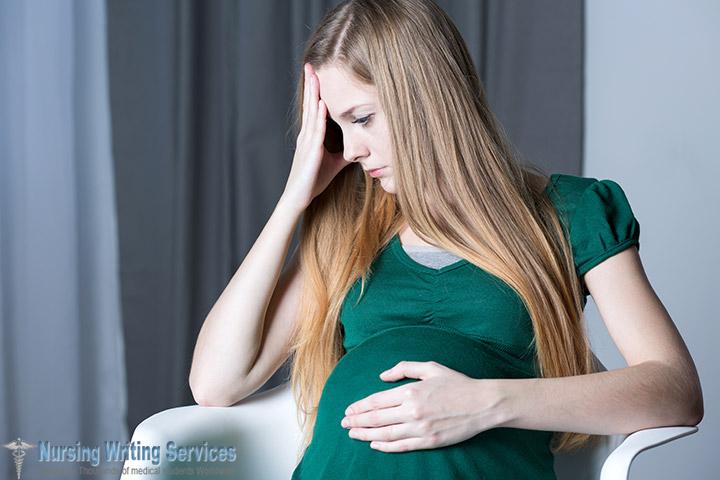
Depression among Pregnant Adolescents
Many studies show that adolescent mothers have a significantly higher rate of depression during pregnancy and postpartum that adults or non-pregnant peers.
The estimate of depression rates for adolescent mothers is between 16-44%. It is high because it contrasts the lifetime prevalence of depression among the adult women and adolescents which is between 5 and 20%. Depression s among the teenage mothers are more likely to persist after birth. The typical symptoms characterize the existence of depression in pregnant adolescents are:
- Sadness
- Anxiety
- Emptiness
- Hopelessness
- Pessimism
- Guilt
- Worthlessness
- Oversleeping
- Insomnia
- Lack of interest in hobbies and other life pleasures
These feelings manifest every day and can last for many weeks even to delivery time.
Causes of Depression among Pregnant Adolescents
1. Shock
Adolescents are in shock on learning about their pregnancy because they are not ready for pregnancy when engaging in sexual behavior. The inability to think about the consequences of mindless indulgence in sex is the reason they become expectation without a choice. Adolescents only discover the downside of their act at a tender age just after realizing they are pregnant. It is even worse than most teenage girls are not aware of the pregnancy process thus they cannot take care of their bodies. They instead indulge in bad habits such as drinking liquor and smoking in an attempt to lay off the depressing phase.
2. Worries about their future
A pregnant teenager has to think about the uncertainties of the future critically. Many feel that they lack adequate knowledge on how to become mothers. It is worse when they begin lack counsel from those who have experience. Other teenagers at this stage have to deal with worries on whether the child’s father will offer assistance or it will be the responsibility of the mother to cater for all the needs by the baby.
3. Family hostilities
Adolescents find it difficult to relate to their parents after getting pregnant before the expected time because they feel guilty about letting down their parents. Most of the families are hostile and blame the teen for the early pregnancy rather than think of ways to offer support. They keep throwing jibes and harsh remarks. The girl will feel that that family does not want her and may even consider denying her any help. Some of them will get more psychological disturbances such as getting suicidal thoughts or even attempt suicide.
4. Helplessness
The shock of getting pregnant during teenage life when a girl should be engaging in education makes a big blow to the self-esteem. Low self-esteem makes the teen feel worthless to the extent of keeping away from seeking medical attention. It causes more problems due to possible complications during the later stages of pregnancy or birth. Some of the teenagers stay oblivious to their existence and try seeking solace from the seemingly hostile environment in vices such as drug abuse which further worsens the “self-hatred.”
Solution to Depression among Pregnant Adolescents
Pregnancy at adolescence comes with a higher risk of adverse psychological effects, but there is a significant variability depending on the approach to the issue. Most teens with the support of their families can get a positive outcome out of their unfortunate situations and bear children like the women who deliver in later years of their life. They require strong functional and social support. Primary and other forms of interventions by families of pregnant adolescents should think of strength based focus.
Minimizing the many negative social impacts that develop after early pregnancy and providing a healthy support system is an essential thing for teen moms. A family of a teenager who experiences the challenge of getting pregnant should make sure that she gains access to a counselor who specializes in pregnancy crisis. The community should also offer programs for teenagers in a similar predicament to meet and share their experiences. Depression among pregnant adolescents is something that society can prevent by providing support systems for the young girls.

